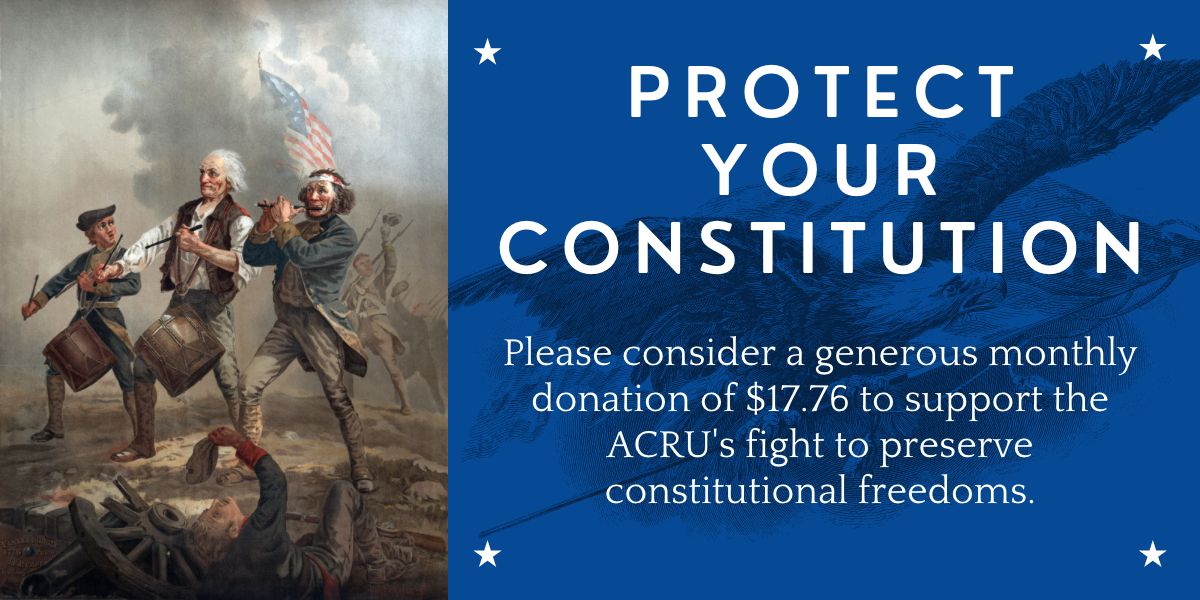Racing to a New Housing Crisis
ACRU Staff
June 29, 2015
This column by ACRU Senior Fellow Robert Knight was published June 28, 2015 by The Washington Times.
Remember when Barney Frank insisted in 2003 that “Fannie Mae and Freddie Mac are not in a crisis,” and “I want to roll the dice a little bit more in this situation toward subsidized housing?”
As chairman of the powerful House Financial Services Committee, former Rep. Frank, Massachusetts Democrat, helped defeat Bush administration proposals to rein in the two federal loan giants. The housing market crashed in 2008 on thousands of bad subprime home loans, triggering the Great Recession, from which this nation still has not recovered.
Well, it’s time to roll the dice again. According to the 5-4 majority opinion at the U.S. Supreme Court on Thursday, housing lawsuits based on race no longer need proof of intentional discrimination.
In other words, even defendants with no racist intent can be sued for racist outcomes if a plaintiff can prove “disparate impact.” That’s when a race-neutral policy results in negative outcomes for an identifiable minority.
In a 2007 school districting case involving Seattle and Louisville, and in a 2009 case over merit testing of firefighters in New Haven, Conn., the court had chipped away at reverse-racial remedies, with Chief Justice John Roberts noting in the 2007 ruling that, “The way to stop discrimination on the basis of race is to stop discriminating on the basis of race.”
The court’s Thursday ruling in the housing case, which no doubt prompted toasts in the White House along with Justice Roberts’ second major opinion upholding Obamacare, came courtesy of Associate Justice Anthony Kennedy.
The “swing” justice joined the court’s four liberals in blessing disparate impact in Texas Department of Housing and Community Affairs v. Inclusive Communities Project.
“It permits plaintiffs to counteract unconscious prejudices and disguised animus that escape easy classification,” Justice Kennedy wrote, handing the American Civil Liberties Union (ACLU) and other liberal groups a new, loosely defined weapon to accuse someone of racism absent credible evidence.
Once again, nothing escapes Justice Kennedy’s infamous “animus” detector. (See Lawrence v. Texas and Romer v. Evans.)
A friend of the court brief in the Texas case filed by the American Civil Rights Union states: “The plain text of the Fair Housing Act prohibits only intentional discrimination, and cannot be construed to provide for disparate impact liability. Indeed, that plain text can only be read to unambiguously preclude disparate impact liability.”
Well, what do words mean anyway, to paraphrase Justice Antonin Scalia’s acidic comment in his Obamacare case dissent?
Combined with a renewed effort by liberals to once again loosen credit qualifications for federally backed housing loans to minorities, a perfect storm may again be brewing.
Housing Bubble 2.0, anyone?
If you want a case study in how liberals create catastrophic problems, blame others, and then offer the same lethal “cures,” check out a just-released study on housing and race. Commissioned by the ACLU, the 34-page Impact of the U.S. Housing Crisis on the Racial Wealth Gap Across Generations gets it backward.
“The financial crisis was sparked by a housing market collapse that had its roots in racial discrimination,” say Social Science Research Council authors Sarah Burd-Sharps and Rebeccah Rasch. “It resulted in mass foreclosures that impacted racial minorities with disproportionate ferocity.”
Well, yes, blacks constitute a greater percentage of the poor, and the poor are hurt more than anyone by economic downturns. It’s also true that more of black families’ wealth is tied up in housing equity, which is why they got hit harder by the housing market crash. The government has no business making them more vulnerable to unscrupulous lenders who saddle them with inflated interest, balloon payments and other conditions that often result in foreclosures.
Passed by Congress in 1977 and signed by President Jimmy Carter, the Community Reinvestment Act (CRA) put a gun to the head of bankers to offer home loans to people they knew could not afford to pay them back. It triggered lawsuits designed to weaken safeguards against bad loans.
The CRA got a retro-rocket boost during the Clinton administration, as related by former Fannie Mae chief credit officer Edward Pinto in a 2009 City Journal article: “During the first 15 years of the act’s existence, total announced commitments under the CRA totaled $9 billion. But starting in 1992, volume exploded. Over the next 16 years, from 1992 to 2008, announced CRA commitments totaled $6 trillion.”
As a community activist in Chicago, Barack Obama “was a pioneering contributor to the national subprime real estate bubble, and roughly half of the 186 African-American clients in his landmark 1995 mortgage discrimination lawsuit against Citibank have since gone bankrupt or received foreclosure notices,” the Daily Caller reported in 2012. “As few as 19 of those 186 clients still own homes with clean credit ratings.”
Nowhere in the ACLU’s report do the crucial roles played by the CRA, community activists and government regulators get a mention, other than a policy recommendation for regulators to once again loosen credit requirements.
Have we learned anything from all of this?
“I hope by next year we’ll have abolished Fannie and Freddie,” Barney Frank told an interviewer in August 2010. “It was a great mistake to push lower-income people into housing they couldn’t afford and couldn’t really handle once they had it.”
But they will probably do so again, since lenders may face a disparate impact lawsuit if they don’t do it.
If Mr. Frank finally got it, why can’t everyone else?
JOIN ACRU's PATRIOT CLUB



